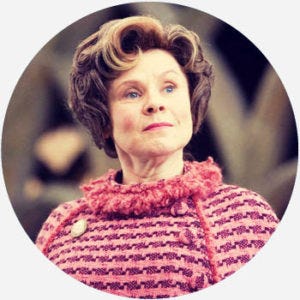The beauty in The Secret History, quotes and other Dark Academia elements in general fiction
By Dana Brown
Hello and happy Sunday!
This week, I finished Donna Tartt’s The Secret History, our November book. It’s been a beautiful experience to read careful and precise literature such as hers. She is known to take a really long time to write a book. She has released three novels in three decades, so on average she spends ten years per book, and it shows. The musicality of her language, the atmosphere she creates, the complexity of not only her characters but their relationships both as a group and in pairs - all of these aspects have left me highlighting my Kindle version as I have with no other book. I was reading the physical book and opening the ebook on my Kindle as I was progressing, just to be able to mark passages and to spare the hard copy from getting vandalised on every page.
“It is better to know one book intimately than a hundred superficially.”
― Donna Tartt, The Secret History
I am looking forward to getting together with the group and discussing how much the similarities between If We Were Villains and The Secret History were a distraction for them, whether the characters were better shaped, and whether the group dynamic was better built. For me, The Secret History hit the spot better than Villains, and I don’t think it’s just because I know Donna Tartt wrote it first. It was published in 1992, but I believe the reason bookstores have it on their shelves is due to M. L. Rio’s reinterpretation of the story, which brought a fresh interest in the original.
Speaking of bookstores, I spent almost two hours in the new space of my favourite bookstore in town together with my dear friend and book clubber, Ella. It was she who noticed an interesting arrangement on the shelves in the bookstore:
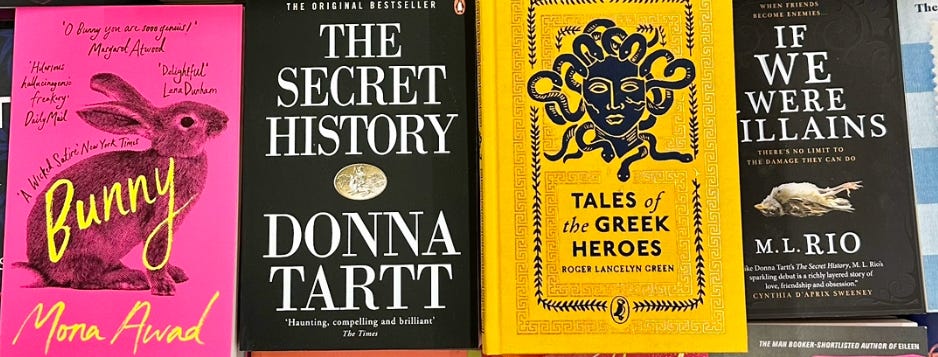
I would like to think this association was not accidental.
Underlined, The Secret History by Donna Tartt
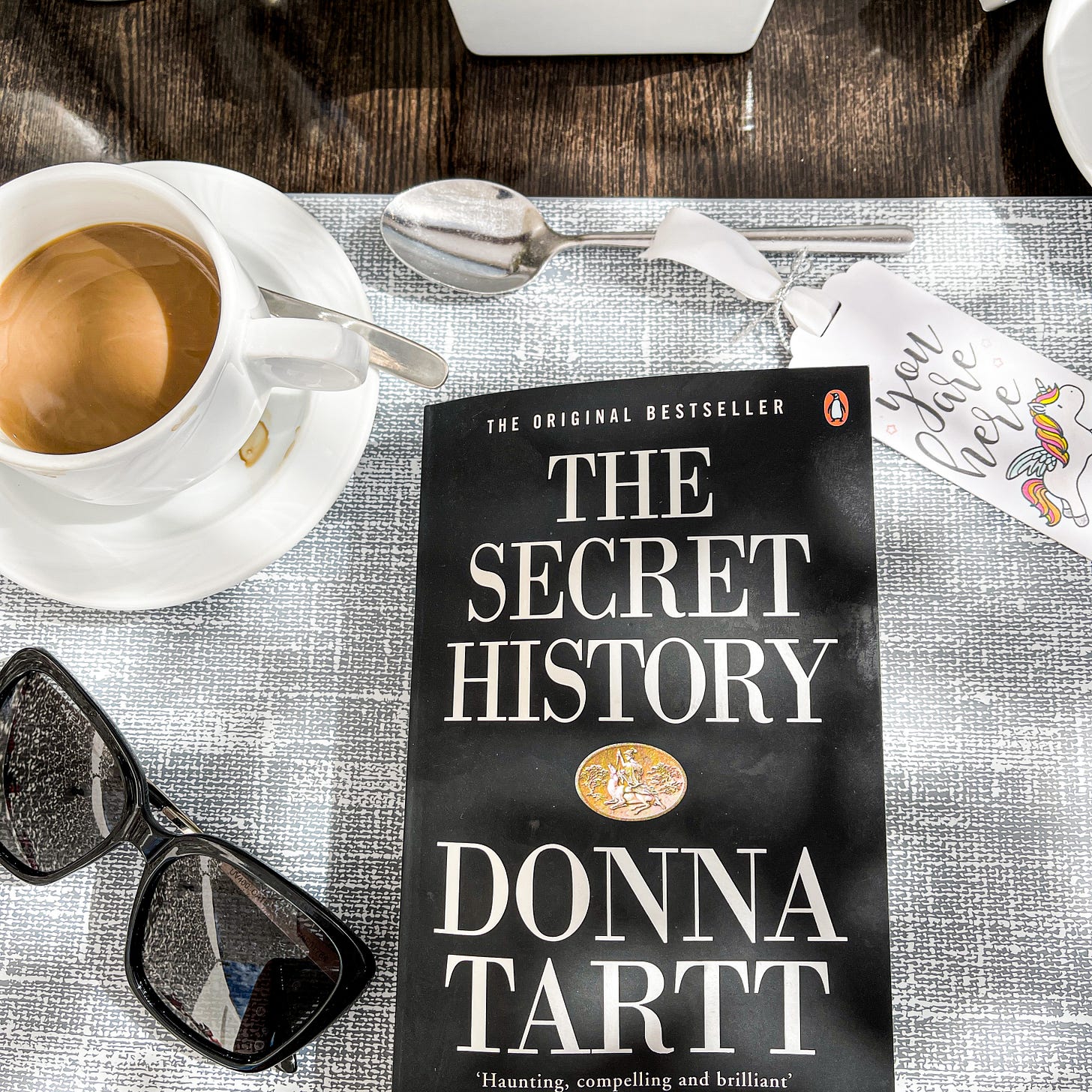
“But how,” said Charles, who was close to tears, “how can you possibly justify cold-blooded murder?’
Henry lit a cigarette. “I prefer to think of it,” he had said, “as redistribution of matter.”
“There is nothing wrong with the love of Beauty. But Beauty - unless she is wed to something more meaningful - is always superficial.”
“For if the modern mind is whimsical and discursive, the classical mind is narrow, unhesitating, relentless. It is not a quality of intelligence that one encounters frequently these days. But though I can digress with the best of them, I am nothing in my soul if not obsessive.”
“It's a very Greek idea and a very profound one. Beauty is terror. Whatever we call beautiful, we quiver before it. And what could be more terrifying and beautiful, to souls like the Greeks or our own, than to lose control completely? To throw off the chains of being for an instant, to shatter the accident of our mortal selves? Euripides speaks of the Maenads: head thrown back, throat to the stars, "more like deer than human being." To be absolutely free! One is quite capable, of course, of working out these destructive passions in more vulgar and less efficient ways. But how glorious to release them in a single burst! To sing, to scream, to dance barefoot in the woods in the dead of night, with no more awareness of mortality than an animal! These are powerful mysteries. The bellowing of bulls. Springs of honey bubbling from the ground. If we are strong enough in our souls we can rip away the veil and look that naked, terrible beauty right in the face; let God consume us, devour us, unstring our bones. Then spit us out reborn.”
Can anything match The Secret History?
Inspiration: stargazer-online.com
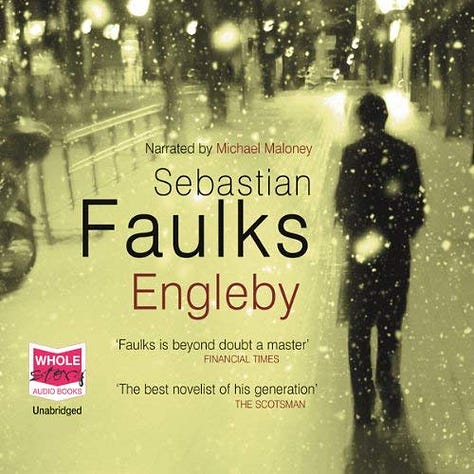
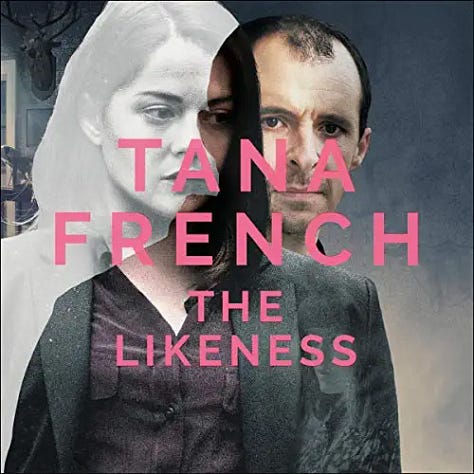

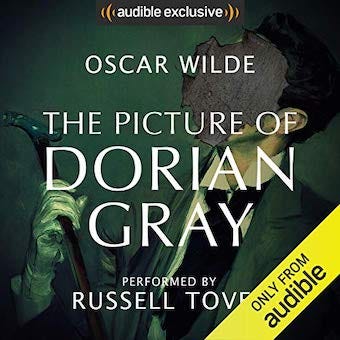
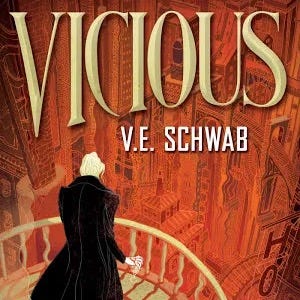
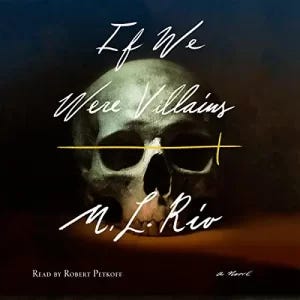
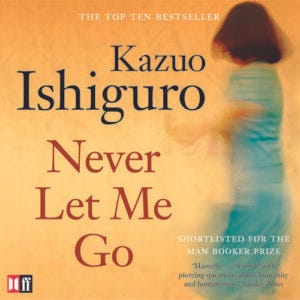
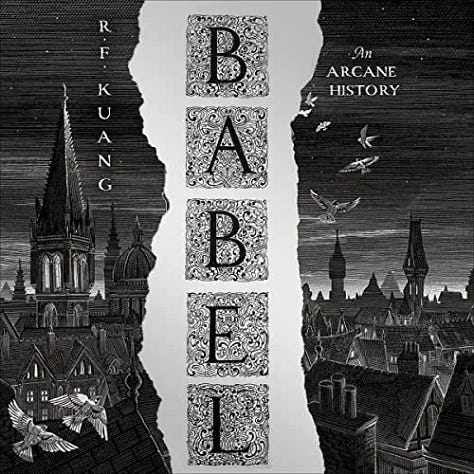

A quick search online and it’s easy to see lots of fans of the book and the dark academia trope referring to The Secret History as the book to read to ruin them all.
I liked the association of books that this article provides, aligning The Picture of Dorian Grey with Frankenstein and Never Let Me Go by Kazuo Ishiguro. I surprise myself sometimes with how bad I am at putting things in buckets or how hard I find it to label things, items, and situations. But if someone points them out to me, they make sense. I wouldn’t have come up with similarities between all these titles on my own, but if I were asked to justify why they’re similar, I would have no problem doing it and supporting it.
As with any book I strongly like, I take a weird satisfaction in reading the really, really bad reviews and the common theme I am seeing is that people really did not like the characters depicted in the book. Just as readers sometimes have trouble differentiating between narrator and author, I feel that they can rarely dissociate obnoxious characters from the writing, so many people rate the book 1 star claiming that the characters were horrible people, so the book was bad.
I giggle and think that it would be quite fun to discuss the book with someone who felt so strongly against the characters, but at the same time, it saddens me because I think they’re missing such an important point.
There is a very subtle quality that some authors have when they create a beautifully written book with questionable and unlikeable characters and I think The Secret History is a very good example of it.
To provide another example that might be more accessible:
Dolores Umbridge is introduced in J.K. Rowling’s fifth Harry Potter book, Order of the Phoenix (2003), as a professor sent from the wizarding world’s governing body to oversee the magic school, Hogwarts, which she does with a tyrannical bureaucracy. The character was memorably played by Imelda Staunton in 2007 and 2010 film adaptations of the books.
Dictionary.com
The passages where Dolores Umbridge is introduced and then developed are so well done from a literary point of view that I found myself savouring the writing while viscerally loathing the character.
To go back to The Secret History, I think what most people struggle with is the presence of a purely positive character, a benevolent presence to counterbalance them all. One thing I want to ask the group in our discussion will be: are there any positive characters in this book? Is the narrator trying to come across as a decent guy?
If you’ve read the book and have an opinion, I would love to read it!
Thanks for reading this week’s The Grapevine!







